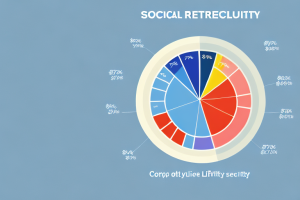Retirement is a significant milestone in one’s life journey, marking the shift from active work life to a period of leisure and relaxation. But why do most people choose to retire? What factors influence their decisions? In this article, we delve deep into the reasons behind retirement, exploring various aspects such as financial factors, age and health considerations, social and psychological aspects, work-life balance, personal savings, and investments, retirement models and strategies, the role of social security, debunking myths and misconceptions, preparing for a fulfilling retirement, the importance of financial education, and the influence of generational differences. By the end, you will have a comprehensive understanding of why most people retire and the factors that play a significant role in their decision-making process.
Understanding the Retirement Trend: A Deep Dive into the Reasons
The decision to retire is often driven by a combination of factors. While some individuals retire due to reaching a certain age, others choose retirement when they feel financially secure or seek a change of lifestyle. Many factors come into play, including personal preferences, societal expectations, and individual circumstances.
One common reason for retirement is the desire to spend more time with family and loved ones. After years of working and dedicating time to their careers, many individuals look forward to the opportunity to prioritize their relationships and create lasting memories with their family members. Retirement provides the freedom and flexibility to be present for important milestones, such as birthdays, anniversaries, and family vacations.
Another factor that influences retirement decisions is the state of one’s health. As individuals age, they may face health challenges that make it difficult to continue working. Retirement can provide the necessary time and resources to focus on managing and improving one’s health. It allows individuals to prioritize self-care, seek medical treatment, and engage in activities that promote physical and mental well-being.
Exploring the Financial Factors that Influence Retirement Decisions
Financial considerations play a crucial role in retirement decisions. Factors like retirement savings, investments, pension plans, and the ability to maintain a desired standard of living impact an individual’s readiness to retire. Adequate financial planning and a clear understanding of one’s financial goals and obligations are essential for a smooth transition into retirement.
One important financial factor that influences retirement decisions is the cost of healthcare. As individuals age, their healthcare needs tend to increase, and the cost of medical expenses can significantly impact their retirement savings. It is crucial for individuals to consider healthcare costs and plan accordingly to ensure they have enough funds to cover medical expenses throughout their retirement.
Another financial factor to consider is the impact of inflation on retirement savings. Inflation erodes the purchasing power of money over time, meaning that the same amount of money will buy less in the future. This can be particularly challenging for retirees who rely on fixed sources of income, such as pensions or annuities. It is important for individuals to account for inflation when planning for retirement and make adjustments to their savings and investment strategies to mitigate its effects.
The Role of Age and Health in Retirement Planning
Age and health are significant considerations when planning retirement. As individuals grow older, their physical and mental capabilities change, impacting their ability to continue working. Health concerns and the desire to enjoy leisurely activities in retirement often lead individuals to retire at a certain age.
One important aspect to consider when it comes to age and retirement planning is the eligibility for government benefits. In many countries, there are specific age requirements to qualify for certain retirement benefits, such as social security or pension plans. These benefits can play a crucial role in providing financial stability during retirement, making it essential to plan accordingly based on age.
Furthermore, health plays a significant role in retirement planning as it directly affects an individual’s ability to work and enjoy their retirement years. Poor health can limit one’s capacity to continue working, leading to an earlier retirement than initially anticipated. It is crucial to take into account potential healthcare costs and the need for long-term care when planning for retirement, as these expenses can significantly impact one’s financial situation.
Social and Psychological Aspects of Retirement: What Drives People to Retire?
Beyond finances and age, retirement decisions are also influenced by social and psychological factors. Some individuals choose to retire to spend more time with family, pursue hobbies, or contribute to their communities in different ways. Others may retire due to burnout or a desire to explore new interests and passions.
Additionally, retirement decisions can be influenced by the desire for a change in lifestyle. Some individuals may choose to retire in order to escape the stress and demands of their previous work life and seek a more relaxed and fulfilling lifestyle. This could involve moving to a different location, downsizing their living arrangements, or adopting a slower pace of life.
Retirement vs. Semi-Retirement: Weighing the Options
Retirement doesn’t necessarily mean complete withdrawal from the workforce. Some individuals opt for semi-retirement, where they reduce their working hours or take up part-time work. Semi-retirement allows individuals to balance work and leisure, providing the best of both worlds.
One of the advantages of semi-retirement is the flexibility it offers. With reduced working hours, individuals have more time to pursue personal interests, hobbies, or spend quality time with family and friends. This flexibility can also be beneficial for those who want to gradually transition into full retirement, allowing them to ease into a slower pace of life while still maintaining some level of income and professional engagement.
The Impact of Work-Life Balance on Retirement Choices
Work-life balance plays a significant role in retirement decisions. Individuals who prioritize maintaining a healthy balance between their personal lives and work often choose to retire earlier or explore alternative work arrangements, such as part-time or flexible roles.
Furthermore, studies have shown that a good work-life balance can have a positive impact on overall well-being and health, which can in turn influence retirement choices. When individuals are able to effectively manage their time and energy between work and personal life, they are more likely to experience lower levels of stress and burnout. This can lead to improved physical and mental health, allowing individuals to enjoy a fulfilling retirement.
The Role of Personal Savings and Investments in Retirement Planning
Personal savings and investments serve as a financial safety net during retirement. Building a robust retirement portfolio, including retirement accounts, stocks, bonds, and other investment vehicles, allows individuals to have a stable income stream and meet their financial needs in retirement.
One key advantage of personal savings and investments in retirement planning is the potential for growth and compounding. By investing in assets that have the potential to appreciate over time, individuals can benefit from the power of compounding. This means that their investments can generate returns, which are then reinvested to generate even more returns. Over the long term, this compounding effect can significantly increase the value of their retirement portfolio.
Another important aspect of personal savings and investments in retirement planning is the ability to diversify one’s portfolio. Diversification involves spreading investments across different asset classes, industries, and geographic regions. This strategy helps to reduce risk by not putting all eggs in one basket. By diversifying their portfolio, individuals can potentially mitigate the impact of market fluctuations and economic downturns, ensuring a more stable and secure retirement income.
Retirement and Social Security: Navigating the Benefits System
Social Security benefits form a significant part of retirement income for many individuals. Understanding how the system works, eligibility criteria, and optimizing benefit claiming strategies are crucial for individuals planning their retirement.
One important aspect of navigating the Social Security benefits system is understanding the different types of benefits available. Social Security offers retirement benefits, disability benefits, survivor benefits, and supplemental security income. Each type of benefit has its own eligibility requirements and rules for claiming.
Exploring Different Retirement Models and Strategies
Retirement models and strategies vary based on individual goals, preferences, and circumstances. Some individuals choose early retirement, while others opt for traditional retirement. Additionally, various models, such as phased retirement, bridge jobs, and encore careers, offer flexibility and alternative approaches to retirement.
One popular retirement model is phased retirement, which allows individuals to gradually transition from full-time work to retirement. This approach often involves reducing work hours or taking on part-time or consulting roles before fully retiring. Phased retirement can provide a smoother transition and help individuals maintain a sense of purpose and social connection during the retirement process.
Retirement by Choice or Necessity? Uncovering the Driving Forces
Retirement decisions can be driven by both choice and necessity. While some individuals retire out of personal preference and a sense of fulfillment, others may be forced into retirement due to health issues, job loss, or caregiving responsibilities. Understanding the underlying reasons for retirement can provide valuable insights into an individual’s financial and emotional well-being.
Furthermore, societal and economic factors can also play a significant role in retirement decisions. For instance, changes in the job market, such as automation and technological advancements, may lead individuals to retire earlier than planned. Additionally, economic downturns or recessions can force individuals to retire earlier than anticipated due to financial constraints.
Debunking Common Myths and Misconceptions about Retirement
Retirement is often surrounded by myths and misconceptions that can influence decision-making. By debunking these falsehoods, individuals can make informed choices and plan for a secure and fulfilling retirement.
One common myth about retirement is that it means the end of productivity and purpose. Many people believe that once they retire, they will no longer have a sense of purpose or contribute to society. However, retirement can actually provide an opportunity for individuals to explore new interests, pursue hobbies, and engage in volunteer work. It is important to recognize that retirement does not mean the end of productivity, but rather a shift in focus and priorities.
Another misconception about retirement is that it requires a large sum of money to be enjoyable. While having financial security is important, retirement can be fulfilling and enjoyable regardless of the size of one’s savings. It is possible to live a fulfilling retirement by carefully managing expenses, exploring affordable leisure activities, and finding joy in simple pleasures. It is important to focus on creating a retirement plan that aligns with one’s financial situation and personal goals, rather than getting caught up in the idea that retirement is only for the wealthy.
Preparing for a Fulfilling Retirement: Tips and Strategies for Successful Transition
Preparing for retirement involves more than just financial planning. It also entails considering lifestyle factors, health care needs, and defining personal goals for the next phase of life. We share practical tips and strategies for a successful transition into retirement.
The Importance of Financial Education for Planning a Secure Retirement
Financial education plays a crucial role in retirement planning. By equipping themselves with knowledge about savings, investments, tax implications, and strategies to maximize retirement income, individuals can make informed decisions and ensure a secure financial future.
The Changing Face of Retirement: How Generational Differences Influence Decisions
Retirement decisions are not one-size-fits-all. Generational differences, such as attitudes toward work, technology adoption, and financial priorities, shape retirement decisions. Understanding these differences is essential in addressing the evolving needs and aspirations of each generation.
In conclusion, retirement is a significant life event that is influenced by a multitude of factors. Financial considerations, age and health, social and psychological aspects, work-life balance, personal savings and investments, retirement models and strategies, the role of social security, myths and misconceptions, pre-retirement preparation, financial education, and generational differences all play a role in shaping retirement decisions. By understanding these factors, individuals can make informed choices and plan for a fulfilling retirement that aligns with their needs and aspirations.



